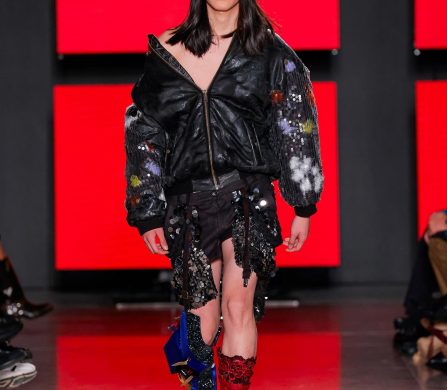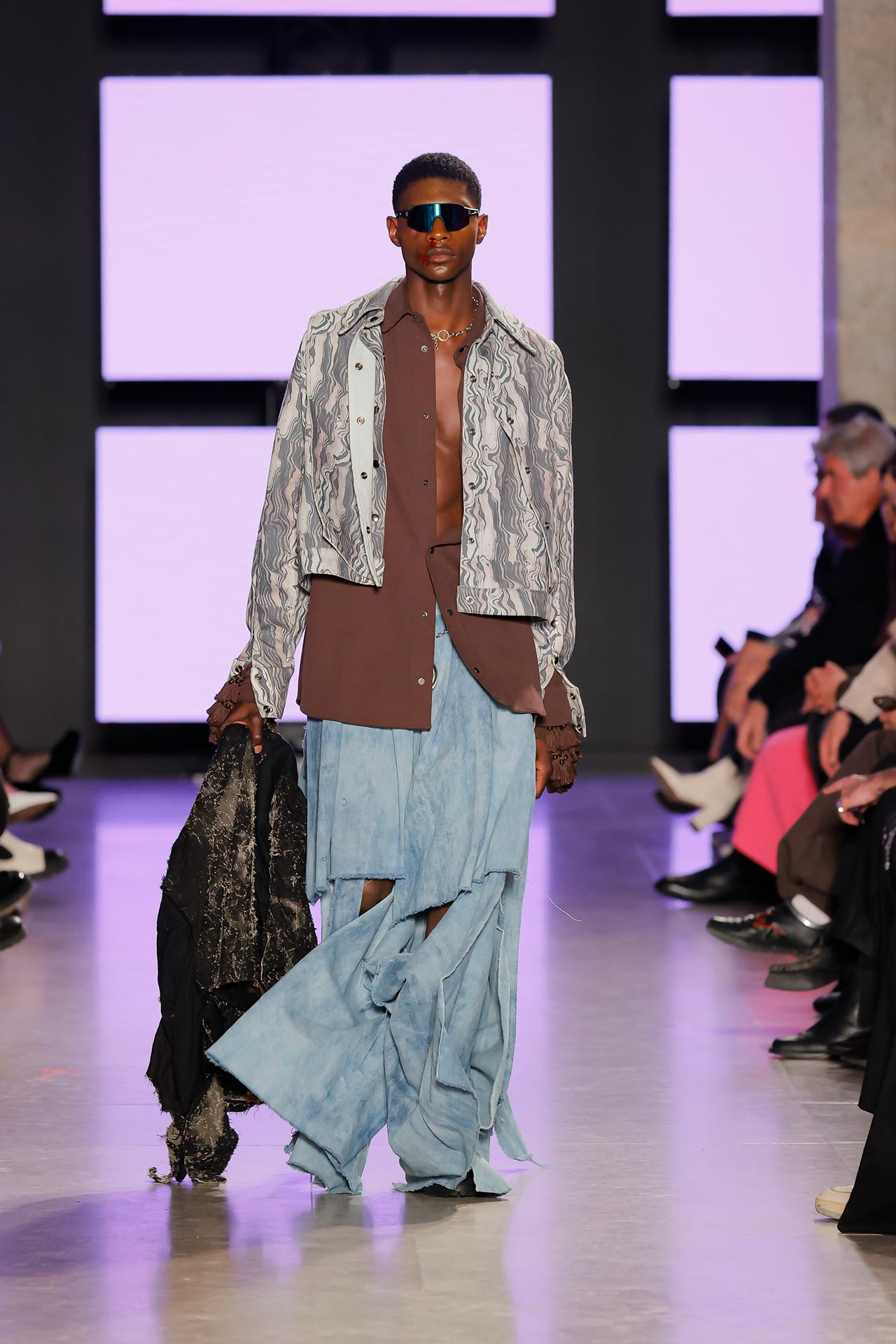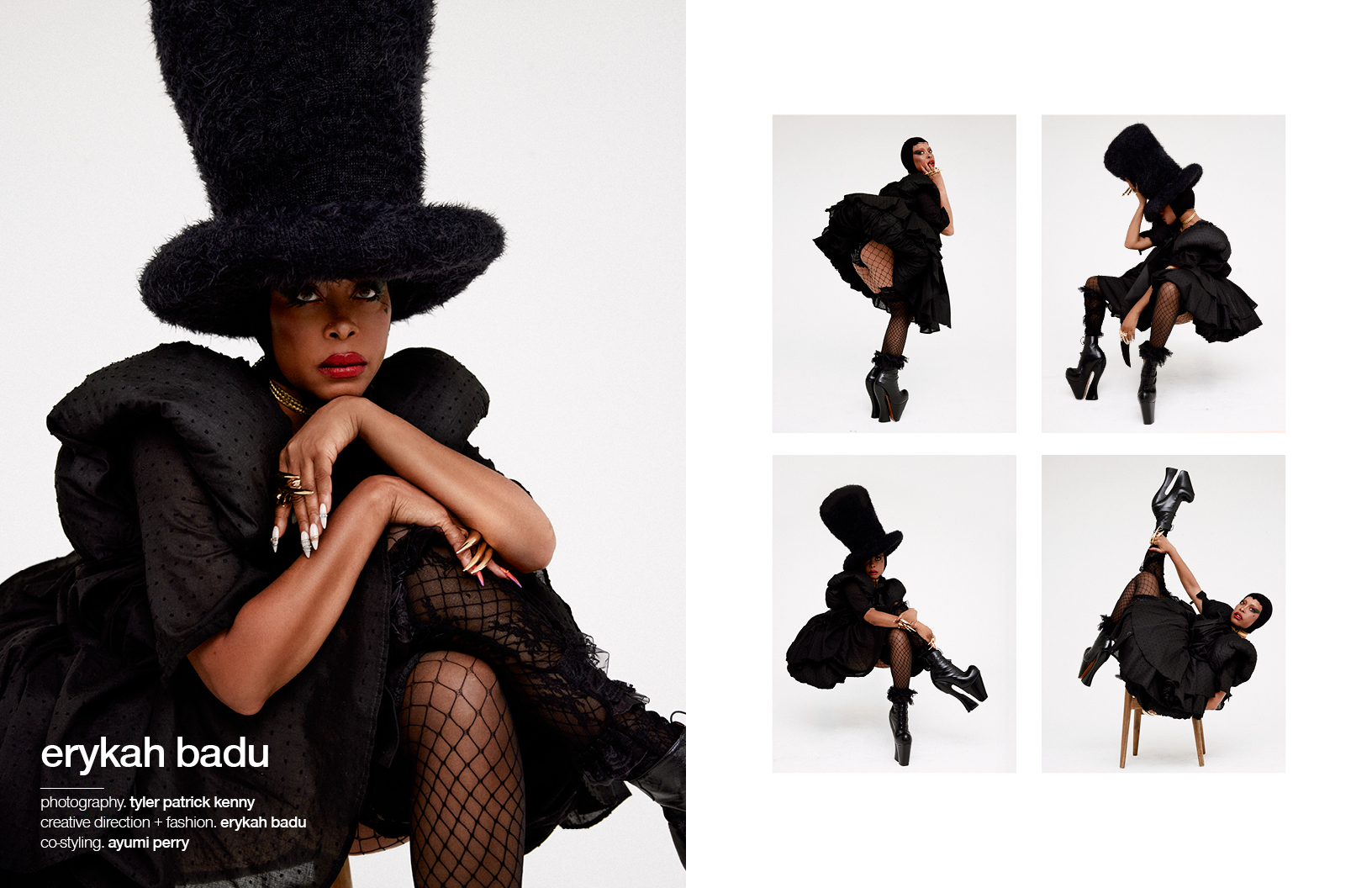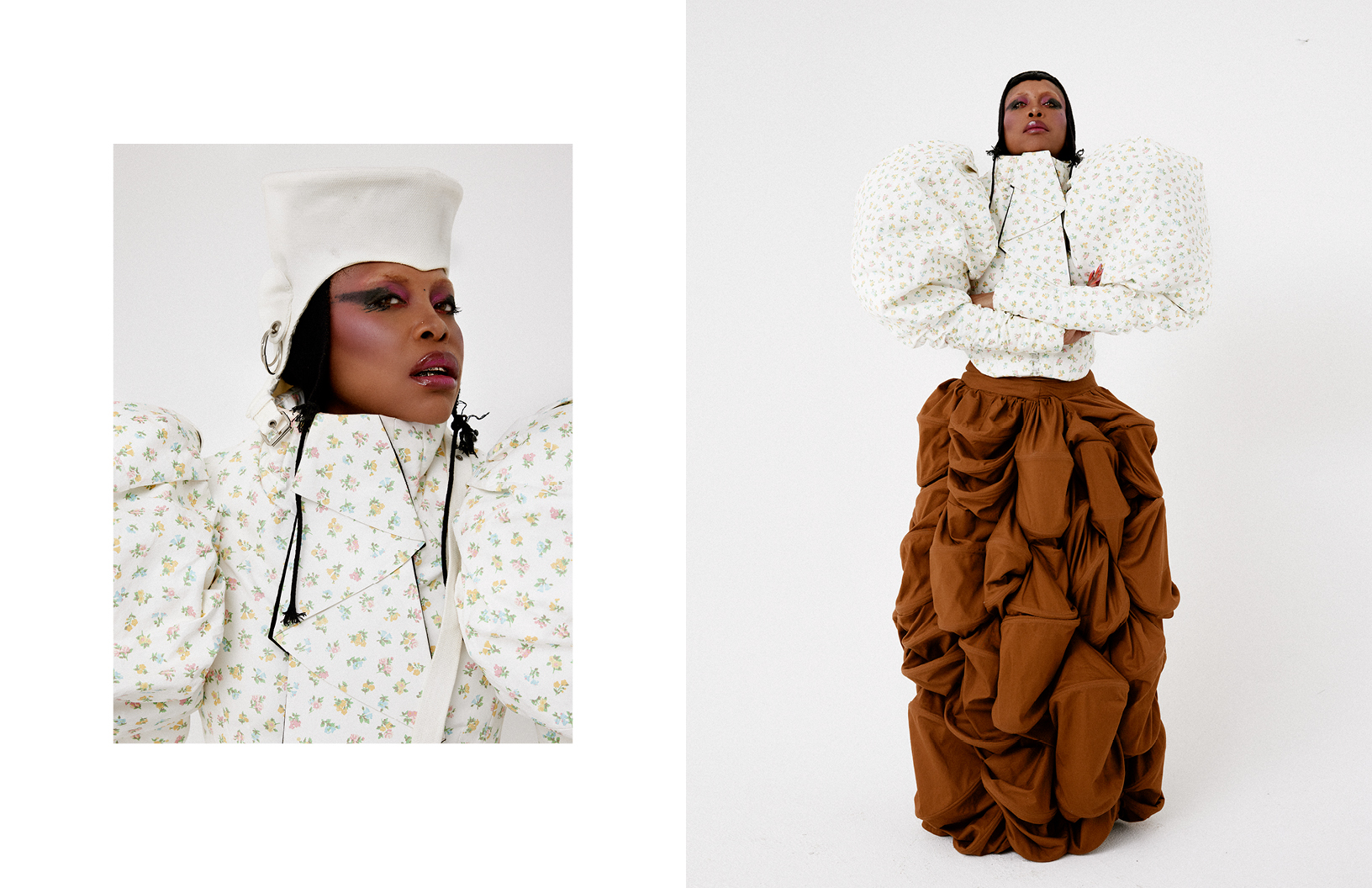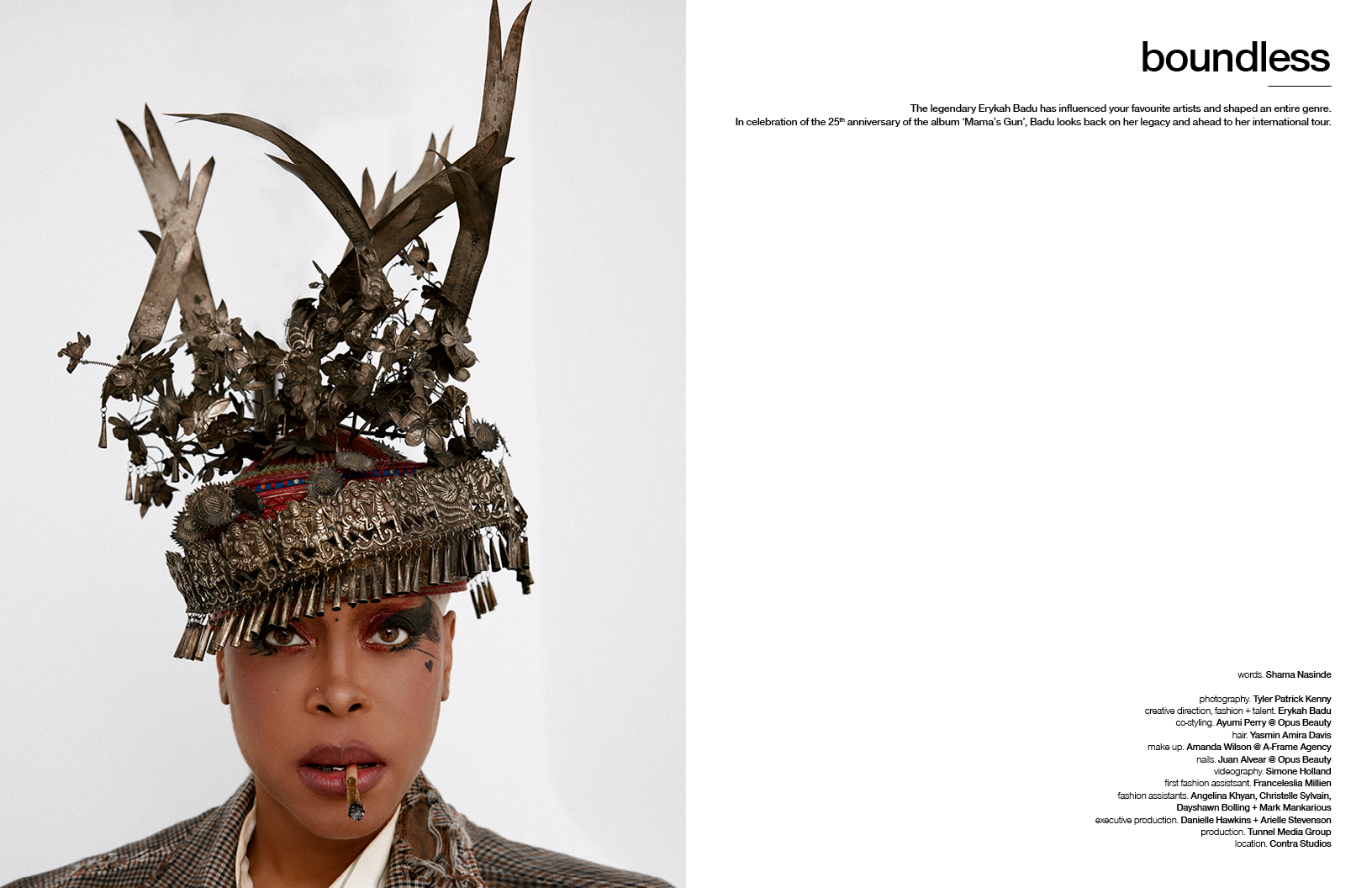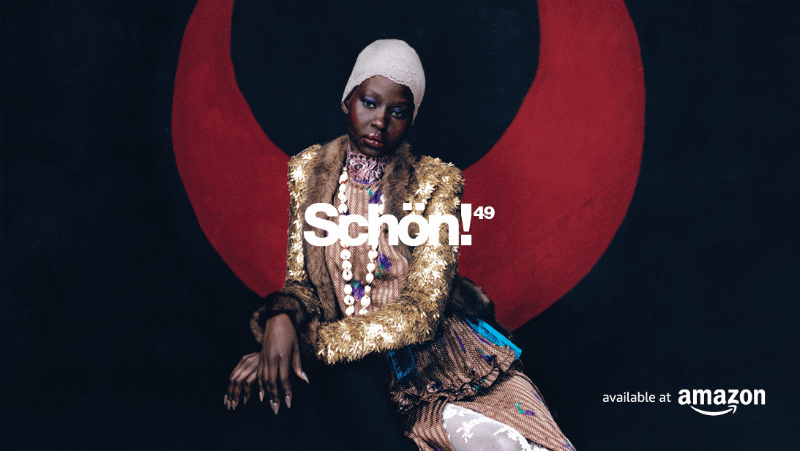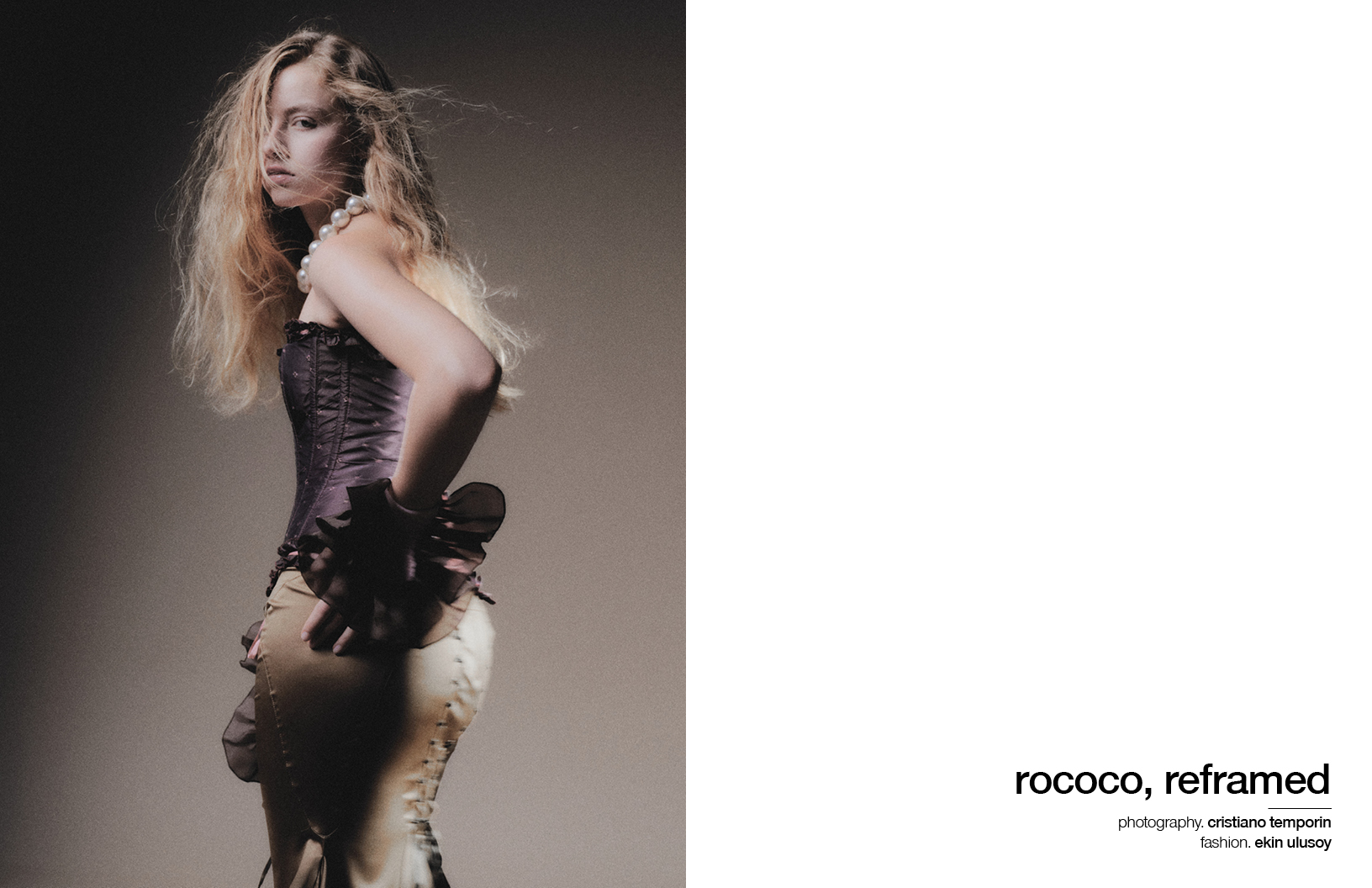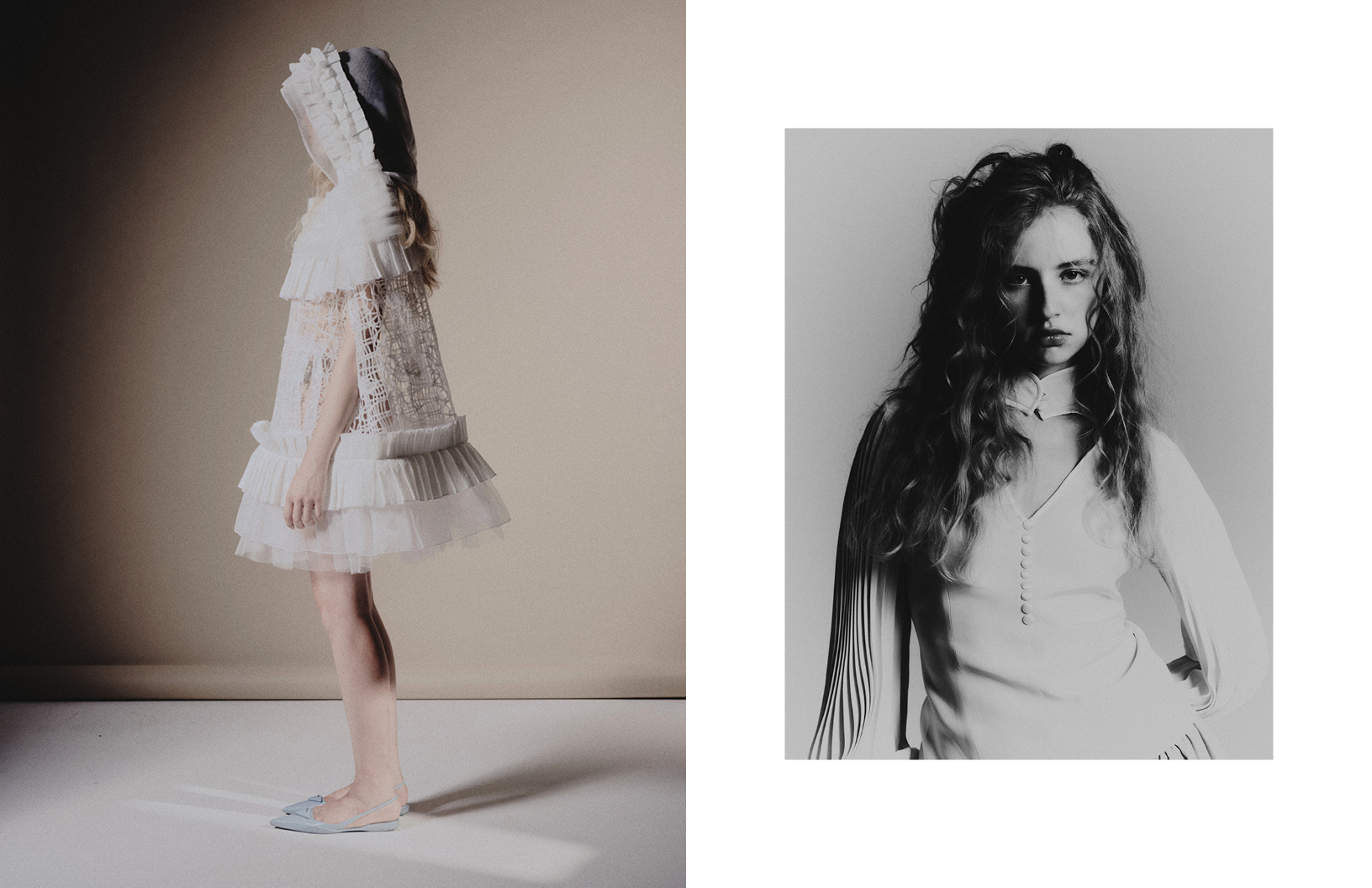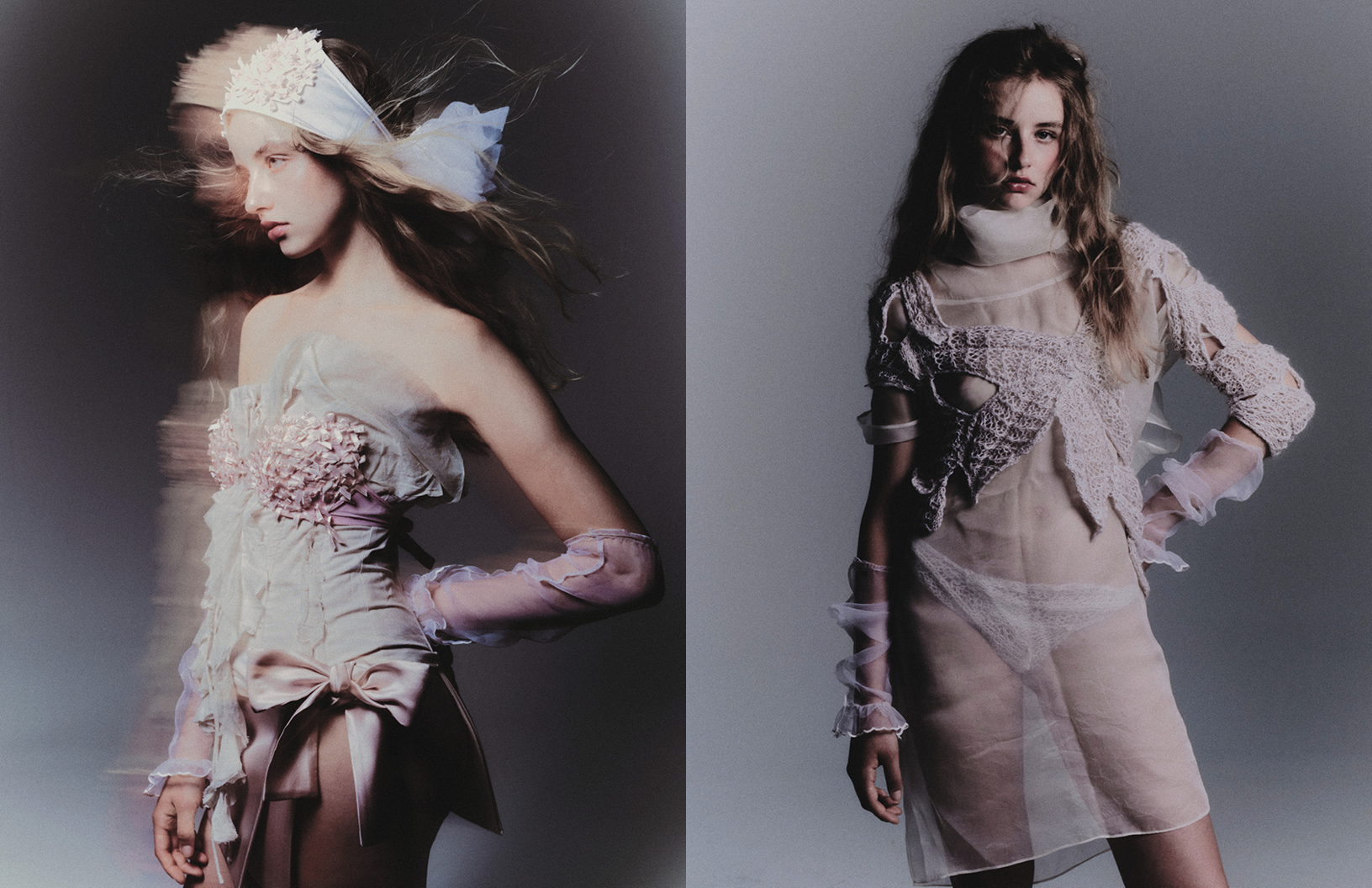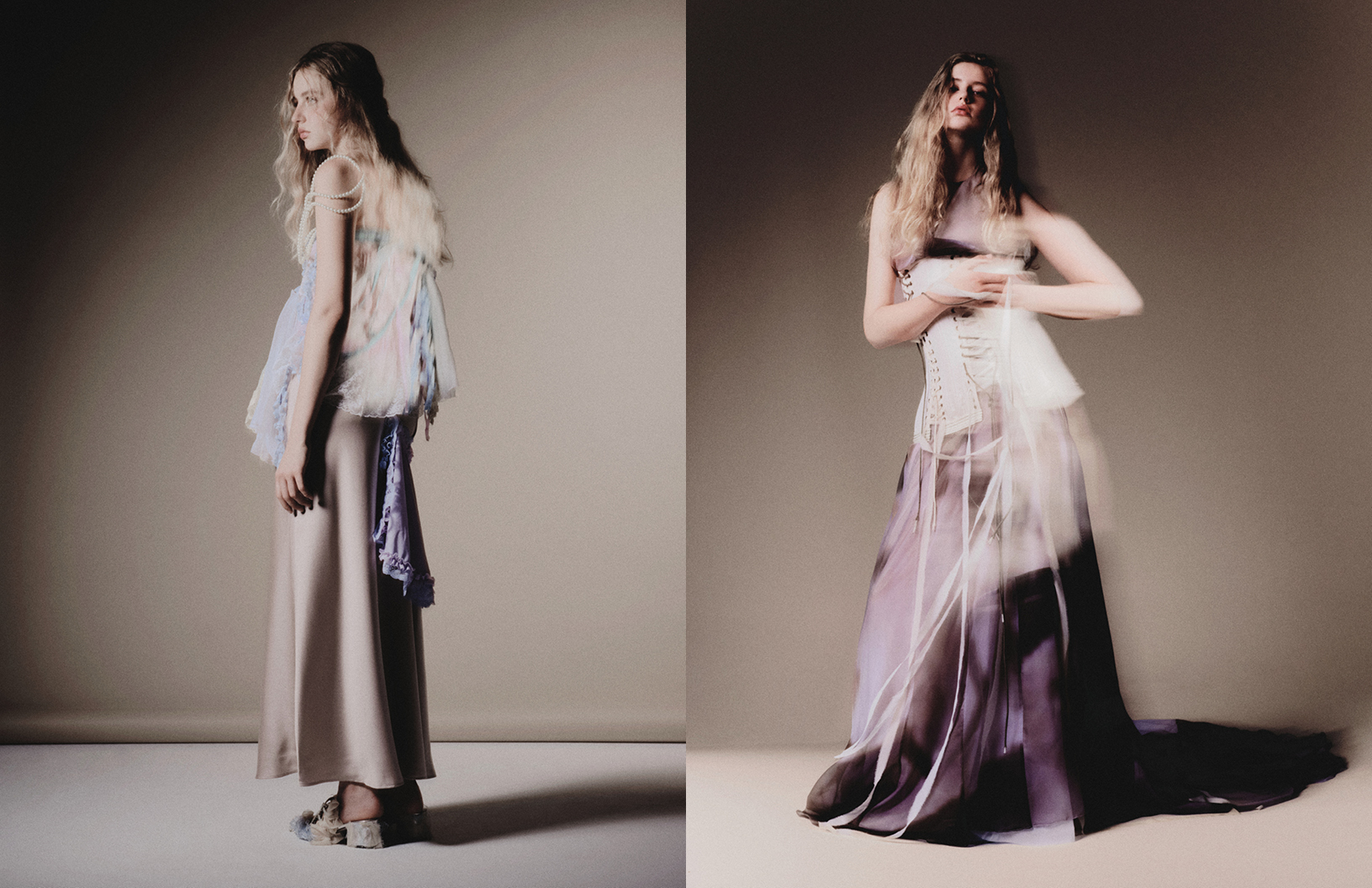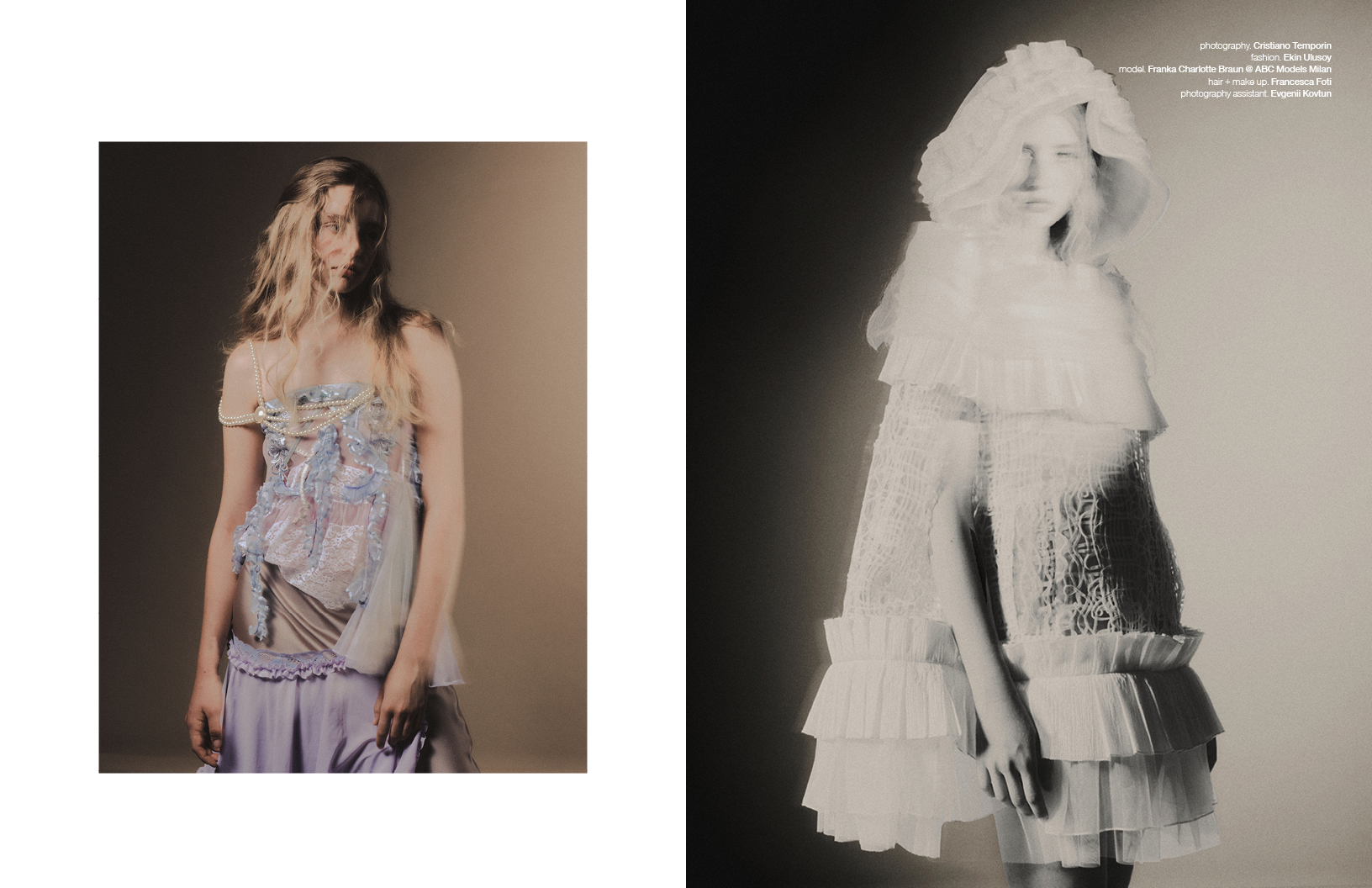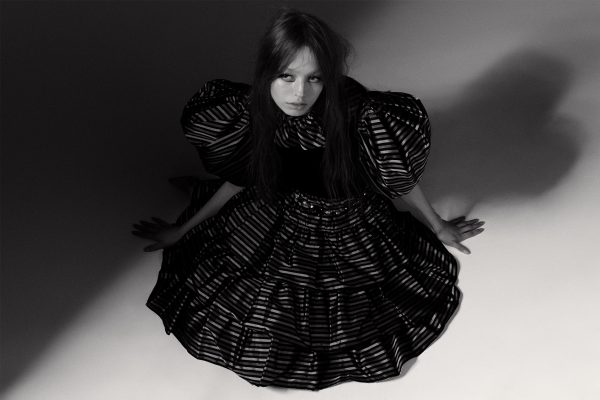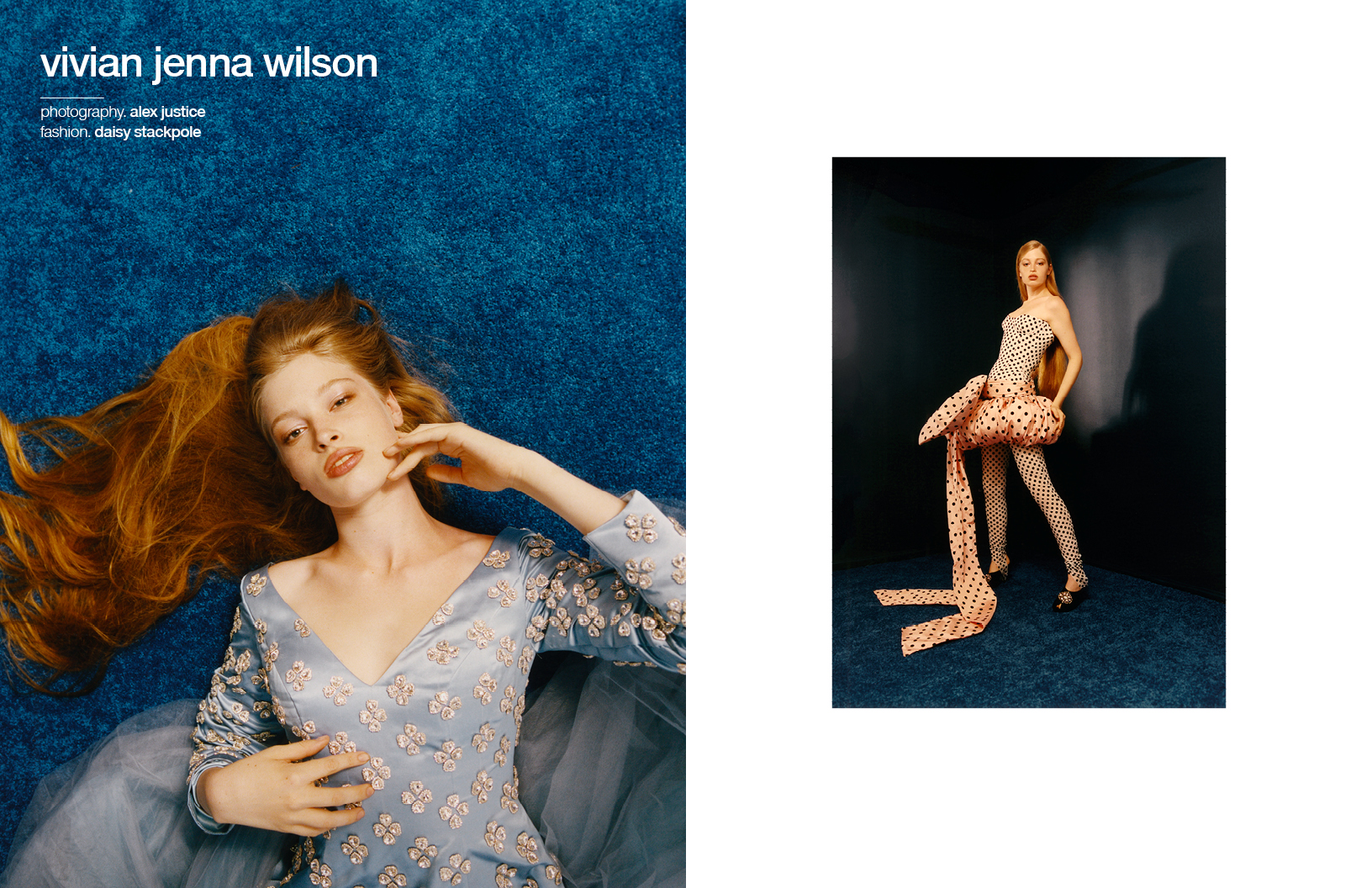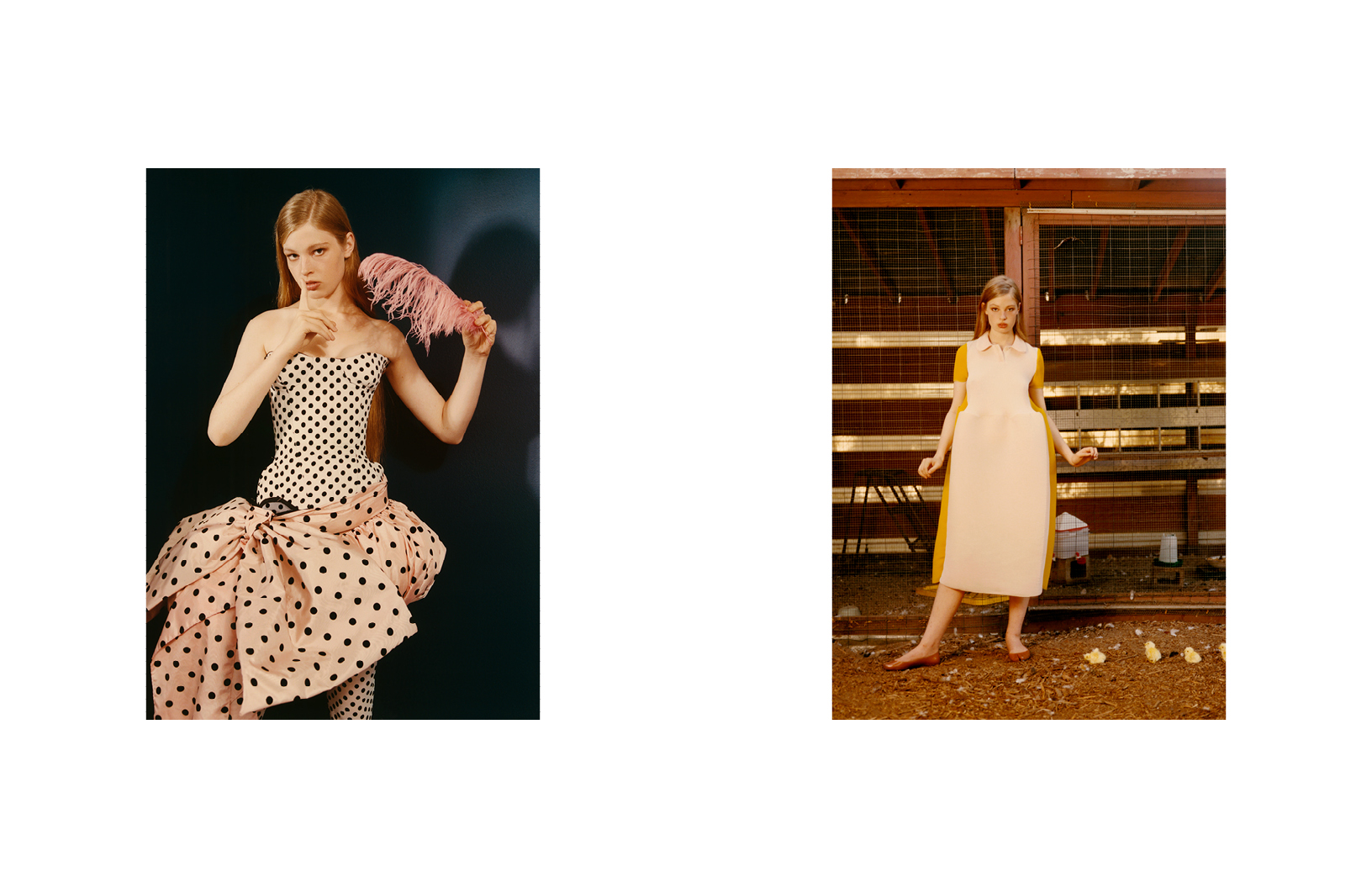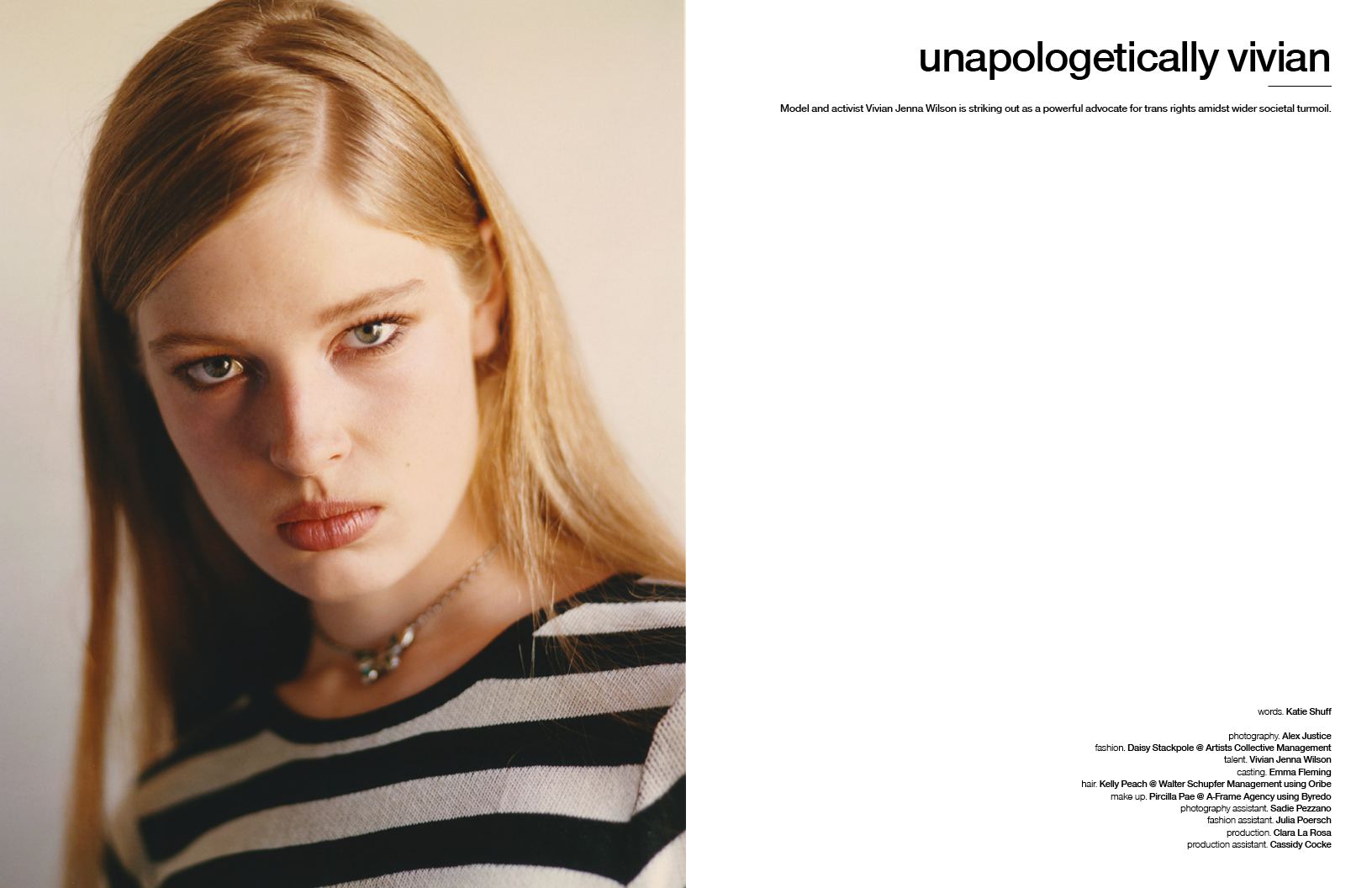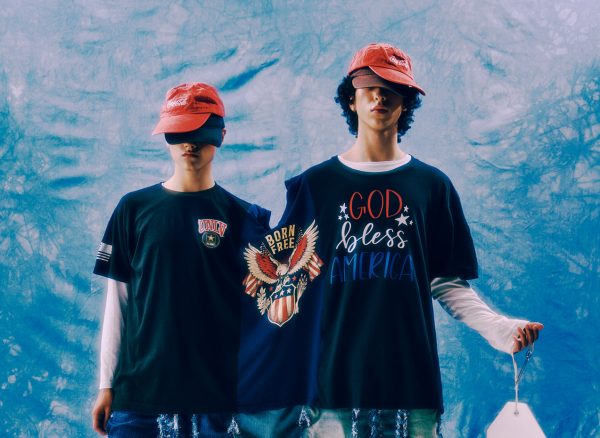
While the world’s attention often gravitates toward the renowned fashion weeks of New York, London, Milan, and Paris, smaller-scale events are carving out their own space in the industry. One such event is Lisbon Fashion Week, known as ModaLisboa, which recently concluded its 64th edition, offering a platform that champions creativity, innovation, and collaboration. For a weekend, Lisbon transformed into a vibrant showcase of fashion-forward thinking, where established designers like Luís Carvalho, Kolovrat, and Luís Onofre shared the stage with emerging talents, including Central Saint Martins graduate Constança Entrudo. The event featured a dynamic lineup of runway presentations, discussions, and hands-on workshops designed to foster engagement beyond the traditional fashion show format.
More than just a fashion week, ModaLisboa is an initiative created by designers, for designers, aimed at mentorship, support, and fostering artistic growth. Since its inception in 1991 through a partnership with the Lisbon Municipality, ModaLisboa has been dedicated to amplifying Portuguese fashion on both national and international stages. The initiative aims to challenge the perception of Portugal as merely a production hub, instead positioning it as a burgeoning center for creativity and original design.
“Modalisboa is important to Portugal. It gives our designers a platform to present their collections and collaborate with the industry,” explains Eduarda Abbondanza, President and Creative Director of ModaLisboa, underscoring the event’s significance. “But it is more than that – it is also great for the city. We want to showcase Lisbon and how it is growing and present to the world our creativity. Modalisboa was born out of necessity of designers. It’s a fashion week by designers, for the designers to mentor them, to guide them, and to give them a space to nurture their creativity.”
Each season, Lisbon Fashion Week adopts a central theme as a conceptual anchor. This year’s theme, ‘Capital, ’ which aimed to explore the multifaceted value of capital — geographically, culturally, and economically — while also examining pivotal issues like sustainability, technology, and digital transformation. The organizers elaborated: “Lisboa Fashion Week shows continue to position themselves as a cultural Capital, because each collection adds a new perspective to the contemporary system in which we operate,” explains the organisers. “It is because of the diversity of visions, voices and aesthetics – united by a responsible and conscious approach to production – that the Portuguese fashion ecosystem continues to thrive.”
One of the event’s defining characteristics was its emphasis on accessibility. By opening certain discussions and shows to the public — such as Constança Entrudo’s open presentation — ModaLisboa sought to democratize fashion, making it an inclusive experience rather than an industry-exclusive affair.
What was most striking about ModaLisboa is the dedication to emerging talent, a key pillar of Lisbon Fashion Week. The commitment to nurturing young designers is evident through initiatives like Sangue Novo and Workstation. Sangue Novo, supported by Seaside, serves as a talent incubator, providing young designers with mentorship, fabric resources, and networking opportunities. The competition spans two seasons, culminating in awards for textile innovation and design excellence. Workstation acts as an incubator beyond seasonal collections, focusing on sustainable business development by connecting designers with photographers, illustrators, and videographers to expand their creative horizons.
This year, five designers — Dri Martins, Duarte Jorge, Francisca Nabinho, Gabriel Silva Barros, and Ihanny Luquessa — were selected for their innovative approaches to textiles. From experimental textiles to conceptual storytelling, each designer brought a unique perspective. Dri Martins integrated 3D technology into garment construction, Duarte Jorge played with exaggerated silhouettes, and Francisca Nabinho championed sustainability by eliminating plastic from her knitwear. Gabriel Silva Barros embraced surrealist influences with a dramatic collection, while Ihanny Luquessa wove his experiences as a Black African man into his expressive designs.
Among them, Duarte Jorge received the ModaLisboa x IED Istituto Europeo di Design Award for his collection Onyx District, characterized by distorted silhouettes and a dark color palette. His prize includes a master’s degree in fashion brand management at IED Firenze, valued at €24,000, along with a €4,000 scholarship. Gabriel Silva Barros was awarded the ModaLisboa x RDD Textiles Award for his commitment to sustainability, repurposing second-hand garments into new textile creations. His reward includes a three-month internship at RDD Textiles, along with a €1,750 scholarship.
Other standouts from the event were HIBU, which was a nostalgic fusion of past and present that redefined wardrobe essentials with a fresh perspective. Drawing from the subculture of “Modern Cholas” from 1990s New Mexico, HIBU blended timeless silhouettes with unexpected details, seamlessly bridging nostalgia and contemporary fashion. The collection featured an eclectic mix of fabrics — cotton, faux fur, jerseys, denim, knit, wool, and leather — all carefully selected to balance texture and comfort. Each piece carried a sense of longevity, designed not just for the moment but for enduring appeal.
BÉHEN’s Spring/Summer 2025 collection, “You’re Mean,” built upon the brand’s signature approach of fusing cultural narratives with contemporary fashion. A playful yet assertive response to their earlier collection, “I Don’t Want You,” this latest offering took inspiration from traditional Portuguese ceramics, incorporating feminine and spiritual symbols associated with bread and sweets. Craftsmanship was at the forefront, with intricate embroidery and innovative textile manipulation elevating the collection. Sustainability remained a core value, as upcycled materials, antique fabrics, and natural fibers like cotton and linen were repurposed to create pieces that ranged from everyday wear to demi-couture. Collaborations with Portuguese artisans ensured the preservation of local craftsmanship while reinforcing the brand’s commitment to ethical production.
Textile and fashion design graduate Bárbara Atanásio introduced her SS25 collection, “Egrégios Avós,” a meditation on heritage and the evolution of personal identity. Rooted in family history and shared lineage, the collection paid tribute to ancestral traditions while embracing the rebellious spirit of modernity. Through an intricate interplay of past and present, Atanásio presented a self-portrait of a pluralistic individual—one who both honors and redefines inherited narratives. Her designs merged historical motifs with contemporary aesthetics, illustrating the fluidity of identity across generations.
Mestre Studio delivered one of the most poignant collections of the week with “Before You Forget Me,” a deeply personal exploration of memory and loss. Inspired by a photograph of the designer’s grandparents before the onset of Alzheimer’s, the collection examined how clothing can preserve fleeting moments and sentimental connections. Each piece evoked a sensory journey through the past—moth-eaten cardigans, the faded scent of lavender, a collection of antique buttons stored in a tin. The show was a tribute to those who have shaped our lives and a reminder to cherish the memories we hold dear. “Before You Forget Me” resonated as a heartfelt homage, ensuring that the past remains woven into the fabric of the present.
With its blend of emerging talent, cultural storytelling, and deeply personal narratives, Lisbon Fashion Week once again affirmed its role as a vital force in shaping the future of fashion. From cutting-edge technology to artisanal traditions, the event showcased a spectrum of creative visions, solidifying Portugal’s place as a hub for innovative and conscious design.
Again, what was apparent throughout Lisbon Fashion Week is the dedication to Portugal’s evolving fashion landscape. By fostering innovation, championing sustainability, and democratising access to fashion, ModaLisboa continues to shape Lisbon into a global fashion capital. With a strong emphasis on emerging talent, creative exchange, and industry evolution, this event is paving the way for the next generation of designers while redefining Portugal’s place in the fashion world.
Learn more about ModaLisboa at modalisboa.pt.
words. Kelsey Barnes















